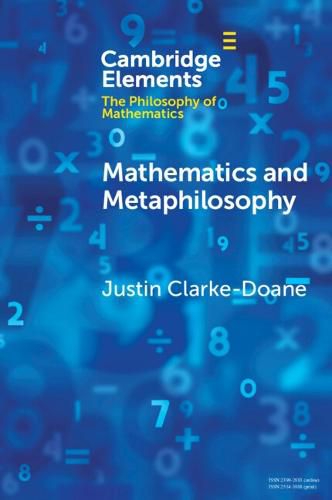Readings Newsletter
Become a Readings Member to make your shopping experience even easier.
Sign in or sign up for free!
You’re not far away from qualifying for FREE standard shipping within Australia
You’ve qualified for FREE standard shipping within Australia
The cart is loading…






This Element discusses the problem of mathematical knowledge, and its broader philosophical ramifications. It argues that the challenge to explain the (defeasible) justification of our mathematical beliefs (‘the justificatory challenge’), arises insofar as disagreement over axioms bottoms out in disagreement over intuitions. And it argues that the challenge to explain their reliability (‘the reliability challenge’), arises to the extent that we could have easily had different beliefs. The Element shows that mathematical facts are not, in general, empirically accessible, contra Quine, and that they cannot be dispensed with, contra Field. However, it argues that they might be so plentiful that our knowledge of them is unmysterious. The Element concludes with a complementary ‘pluralism’ about modality, logic and normative theory, highlighting its surprising implications. Metaphysically, pluralism engenders a kind of perspectivalism and indeterminacy. Methodologically, it vindicates Carnap’s pragmatism, transposed to the key of realism.
$9.00 standard shipping within Australia
FREE standard shipping within Australia for orders over $100.00
Express & International shipping calculated at checkout
This Element discusses the problem of mathematical knowledge, and its broader philosophical ramifications. It argues that the challenge to explain the (defeasible) justification of our mathematical beliefs (‘the justificatory challenge’), arises insofar as disagreement over axioms bottoms out in disagreement over intuitions. And it argues that the challenge to explain their reliability (‘the reliability challenge’), arises to the extent that we could have easily had different beliefs. The Element shows that mathematical facts are not, in general, empirically accessible, contra Quine, and that they cannot be dispensed with, contra Field. However, it argues that they might be so plentiful that our knowledge of them is unmysterious. The Element concludes with a complementary ‘pluralism’ about modality, logic and normative theory, highlighting its surprising implications. Metaphysically, pluralism engenders a kind of perspectivalism and indeterminacy. Methodologically, it vindicates Carnap’s pragmatism, transposed to the key of realism.